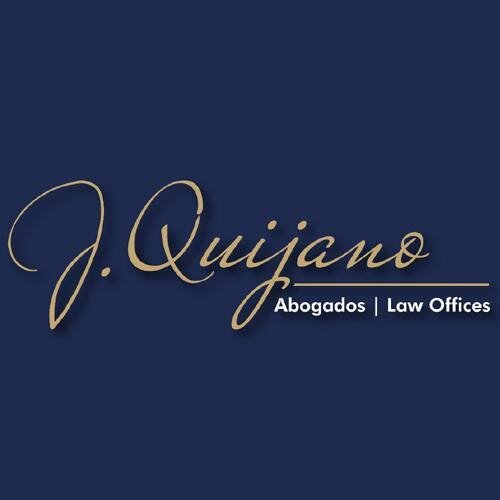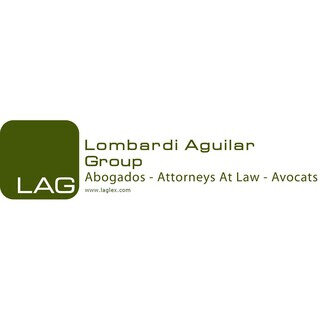Best Gaming Lawyers in Panama City
Share your needs with us, get contacted by law firms.
Free. Takes 2 min.
List of the best lawyers in Panama City, Panama
About Gaming Law in Panama City, Panama
Gaming in Panama City, Panama is regulated by specific laws and regulations to ensure fair and responsible practices. As a popular destination for tourists and avid gamers, Panama City offers various gaming establishments, including casinos and online gaming platforms.
Why You May Need a Lawyer
There are several situations where hiring a lawyer with expertise in gaming law can be beneficial:
- Obtaining a gaming license for starting a new gaming business
- Negotiating contracts with game developers, suppliers, or sponsors
- Avoiding legal pitfalls while organizing gaming events or tournaments
- Defending your rights as a player, such as disputing unfair winnings or fraudulent practices
- Responding to any legal issues related to taxation or money laundering
Local Laws Overview
Gaming laws in Panama City primarily revolve around:
- Gaming Control Board (JCJ): The JCJ is responsible for regulating and overseeing all gaming activities within the country.
- Licensing Requirements: To operate a gaming establishment, whether physical or online, obtaining a license from the JCJ is mandatory.
- Anti-Money Laundering (AML) Measures: Panama has strict AML laws in place to prevent money laundering in the gaming sector.
- Consumer Protection: Laws and regulations aim to protect players' interests, ensuring fairness and transparency in gaming.
Frequently Asked Questions
1. Is online gambling legal in Panama City?
Yes, online gambling is legal in Panama City. However, online gaming operators must obtain a license from the JCJ to ensure compliance with local regulations.
2. What is the legal gambling age in Panama City?
The legal gambling age in Panama City is 18 years old. People below this age are not allowed to participate in any form of gambling.
3. How can I obtain a gaming license for my business?
To obtain a gaming license in Panama City, you must complete an application process with the JCJ. The process includes providing necessary documentation, demonstrating financial stability, and complying with legal requirements.
4. What are the penalties for illegal gambling in Panama City?
Engaging in illegal gambling activities in Panama City can lead to significant penalties, including fines and imprisonment. The severity of the penalty depends on the specific violation and may vary case by case.
5. How can I file a complaint against a gaming operator?
If you have a complaint against a gaming operator, you should first attempt to resolve the issue directly with the operator. If that fails, you can contact the JCJ and provide them with details of your complaint.
Additional Resources
For further information or legal advice about gaming in Panama City, Panama, consider reaching out to the following resources:
- Gaming Control Board (JCJ): http://www.jcj.gob.pa/
- Ministry of Economy and Finance: http://www.mef.gob.pa/
- Association of Gaming Operators Panama: http://www.asocap.net/
Next Steps
If you require legal assistance in the field of gaming in Panama City, Panama, it is recommended to:
- Research and identify lawyers or law firms with expertise in gaming law.
- Contact and schedule consultations with potential lawyers to discuss your specific legal needs.
- Prepare necessary documents and information that may be required during the consultation.
- Evaluate the qualifications, experience, and fees of different lawyers before making a decision.
- Select a lawyer who best meets your requirements and proceed accordingly with their guidance.
Lawzana helps you find the best lawyers and law firms in Panama City through a curated and pre-screened list of qualified legal professionals. Our platform offers rankings and detailed profiles of attorneys and law firms, allowing you to compare based on practice areas, including Gaming, experience, and client feedback.
Each profile includes a description of the firm's areas of practice, client reviews, team members and partners, year of establishment, spoken languages, office locations, contact information, social media presence, and any published articles or resources. Most firms on our platform speak English and are experienced in both local and international legal matters.
Get a quote from top-rated law firms in Panama City, Panama — quickly, securely, and without unnecessary hassle.
Disclaimer:
The information provided on this page is for general informational purposes only and does not constitute legal advice. While we strive to ensure the accuracy and relevance of the content, legal information may change over time, and interpretations of the law can vary. You should always consult with a qualified legal professional for advice specific to your situation.
We disclaim all liability for actions taken or not taken based on the content of this page. If you believe any information is incorrect or outdated, please contact us, and we will review and update it where appropriate.
















